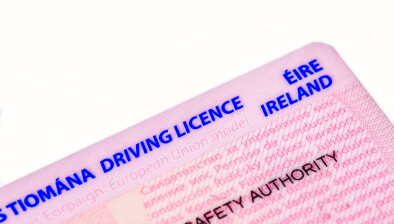High Court quashes drunk driving conviction over chain of custody issue

The High Court has overturned a drunk driving conviction following a trial where the prosecution failed to lead evidence on the chain of custody of a blood sample.
Ms Justice Sara Phelan last week granted an order of certiorari quashing the District Court’s 2024 conviction of the applicant, Andrejs Ratinskis, who had received a two-year driving ban and a €350 fine.
The case centred on whether statutory presumptions under the Road Traffic Act 2010 (RTA 2010) covered the custody of the applicant’s blood sample between its collection at Newbridge Garda Station and its transfer to the Medical Bureau of Road Safety (MBRS).
The sample, taken at 12.37am on 21 August 2022, was posted to the MBRS the following day, but Garda evidence did not account for its storage or security during this period.
Lawyers for the applicant argued that the prosecution was obliged to prove the sample’s integrity under normal evidence rules, as the statutory presumptions in sections 15(4) and 20(2) of the RTA 2010 did not extend to this “interregnum”.
Ms Justice Phelan agreed, finding that “neither s.15 nor s.20 of the RTA 2010, nor the s.15 form, provided for a presumption that the integrity of the specimen remained intact, and therefore the need for the prosecution to adduce chain of custody evidence was not obviated”.
She added: “It was not for the accused to cross-examine the Garda and thus fill the gaps in the prosecution’s evidence.”
The judge also held that the applicant’s decision to pursue a judicial review instead of an appeal was not inappropriate due to “the totality of this case and the broad application of the outcome of the challenge”.
Having identified “an inconsistency between the extent of the presumption and its application in the present case”, Ms Justice Phelan said it was a matter for the State or the Oireachtas to determine “the manner in which this inconsistency is addressed”.
Noting that the judgment is “likely to be of wider application than simply the present case”, she said it would not take effect “until the perfection of the orders consequent upon the judgment”.
Further hearings will be held to consider whether a remittal to the District Court is necessary or appropriate as well as the issue of costs, which Ms Justice Phelan said she was minded to award to the applicant.
The applicant was represented by solicitor Pádraig Langsch and counsel Philip Sheahan SC and Liam Carroll BL.
Commenting on the ruling, Mr Langsch told Irish Legal News: “This judgment will have a significant impact not only on drunk driving cases but also on the applicability of the Supreme Court decision in DPP v AMcD [2016] IESC 71, which is a frequently cited precedent by defence lawyers.”










